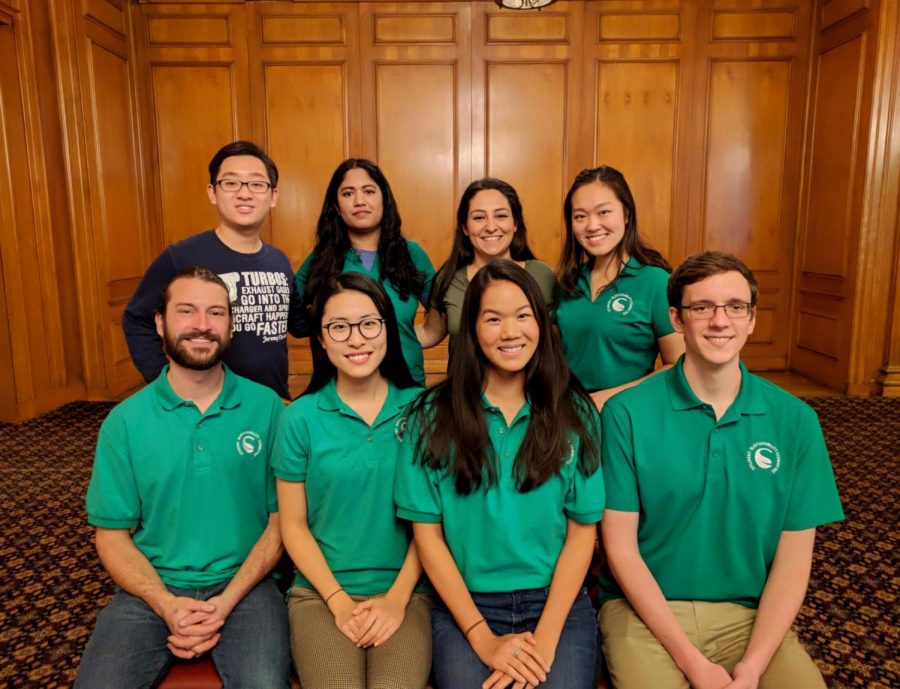SSC budgets for upcoming projects
Photo Courtesy of Irais Garcia
Members of the Student Sustainability Committee pose for a photo. The orgnaization works to set sustainable and environmentally friendly initiatives on campus.
November 15, 2017
The Student Sustainability Committee uses student fees to fund sustainability-related projects proposed by students, staff and faculty.
The $12 Sustainable Campus Environment Fee and the $2 Cleaner Energy Technologies Fee are charged to students per semester, and amount to over $1 million in funding per year for the SSC.
The SSC started in 2002, and has allocated over $10 million to sustainability-related projects since its inception, said Cathy Liebowitz, adult supervisor and SSC coordinator, in an email.
Bevier Cafe, a student-run restaurant located at 905 S. Goodwin Ave., now uses reusable food containers, and Krannert Center for the Performing Arts’s LED upgrade reduces its lobby energy costs by 80 percent, Liebowitz said.
SSC is allocating $1.05 million over 20 years to the solar farm project on campus, said Ashley Yu, vice chair external and senior in LAS.
Get The Daily Illini in your inbox!
The solar farm provides 2 to 3 percent of the campus’ energy, said Nicholas Heyek, chair of SSC and junior in Engineering. The SSC has made “long-term” investments such as the Illini Solar Car, which does not have an immediate impact but is “encouraging education in really important fields,” Heyek said.
“We put money into the hands of students who basically build a prototype car that uses renewable energy with solar,” Heyek said.
The SSC has five different focus groups: energy, transportation, land and water, education, and food and waste. Applicants submit their proposals to the specific focus groups based on what their project is about.
Last year, the SSC had $3.8 million worth of project proposal submissions and had to cut them down to $1.1 million.
“We know that we are using student monies and we don’t take it lightly. Our evaluation process is very strict, and we do that thinking ‘how will this project benefit the students?’” Yu said.
Initially, SSC allocated most of its funding to energy projects. Now, SSC funds a lot of food and waste projects, such as purchasing processing equipment that brings local juice to dining halls.
The SSC is open to funding projects that would have a greater impact on surrounding communities such as Champaign and Urbana, and work toward educating the community on sustainability.
“Many of the funded projects are collaborations. For instance, SSC recently funded the Red Oak Rain Garden project, which brings together Red Bison, the Master Gardeners, the Department of Landscape Architecture and Illinois Water Resource Center,” Leibowitz said.
Although the SSC has many non-student advisers, students make the ultimate decision on funding and selection of projects.
Public records of distribution of funding can be accessed here.







